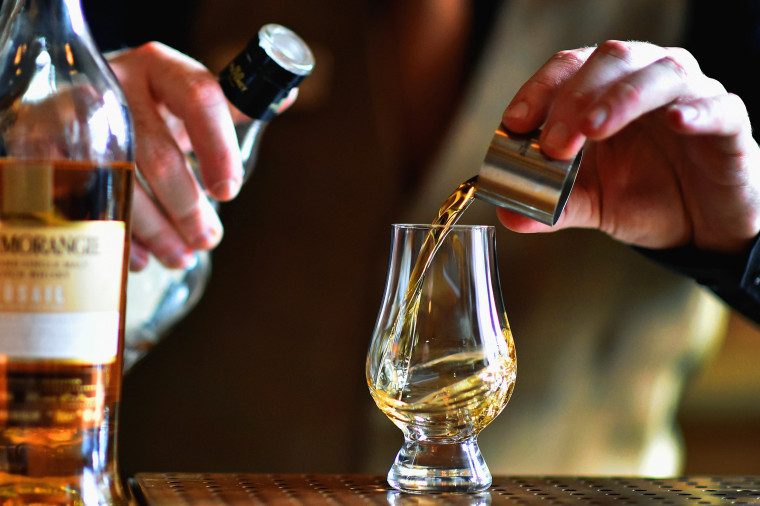The Scotch industry isn’t happy about raising a parting glass to the European Union.
Scotch quaffers around the world aren’t likely to abandon their favorite tipple anytime soon, but that doesn’t mean the companies that distill Scotland’s signature whiskies are excited about the United Kingdom’s vote to abandon its membership in the E.U.
With 90 percent of the nation’s whisky stock shipped abroad, more than £1 billion pounds in sales could be at risk if the Brexit went through, industry leaders warned in the months ahead of the vote.
“The process of leaving the E.U. will inevitably generate significant uncertainty,” David Frost, chief executive for the Scotch Whisky Association, which is based in Edinburgh, said in a statement on Friday.
Read More: Scotland Seeks Independence Again After U.K. 'Brexit' Vote
“Of course, we are confident Scotch whisky will remain the pre-eminent international spirit drink. But equally, there are serious issues to resolve in areas of major importance to our industry which require urgent attention, notably the nature of future trade arrangements with both the single market and the wider world.”
Scotch whisky, which has to age in special oak casks within Scotland for 3 years or more to be the real deal, is made at 115 distilleries scattered throughout the country, according to the SWA. Ninety-nine million cases of the alcoholic beverage were shipped to other nations in 2014, the group says, to be served up neat, on the rocks or mixed in drams of Talisker, Balvenie and Glenfiddich.
“As one of the U.K.’s leading exporters, Diageo remains committed to the long term prosperity of the Scotch whisky industry and will now work closely with our industry bodies to seek clarity on the transition process,” a spokesperson for Diageo — which owns blend and single malt Scotch brands including Johnnie Walker, J&B and Dalwhinnie — told NBC News on Friday.
“It is a priority that the U.K. continues to benefit from open access to the E.U. as well as favorable international trade agreements to protect the U.K.’s important export industries, including Scotch whisky.”
Read More: How Baby Boomers Defeated Millennials in Britain's Historic Brexit Vote
The U.K.’s environment secretary met with whisky industry leaders in May, as they made clear their support for a U.K. that remained partnered with its European neighbors.
“Leaving the E.U. would be a leap in the dark for our great British food and drink industry,” Elizabeth Truss, the U.K.'s environment secretary, said in May. “Our thriving Scotch industry and the wealth it brings to us all through jobs and investment will be stronger, safer and better off within a reformed E.U.”
The results of the Brexit vote were met with new calls for Scottish independence on Friday, where a majority of people voted to remain in the E.U. Government officials there said they would move for a new vote on whether the country should break its ties with the rest of the U.K.

